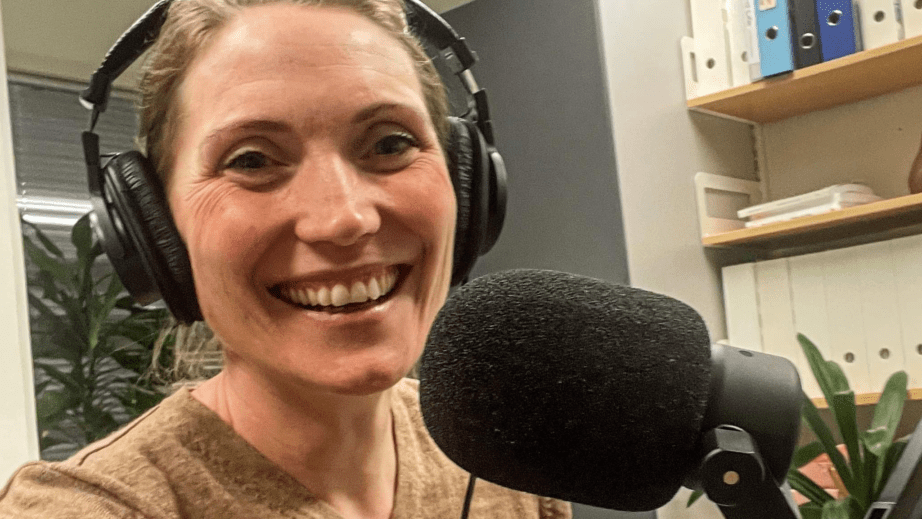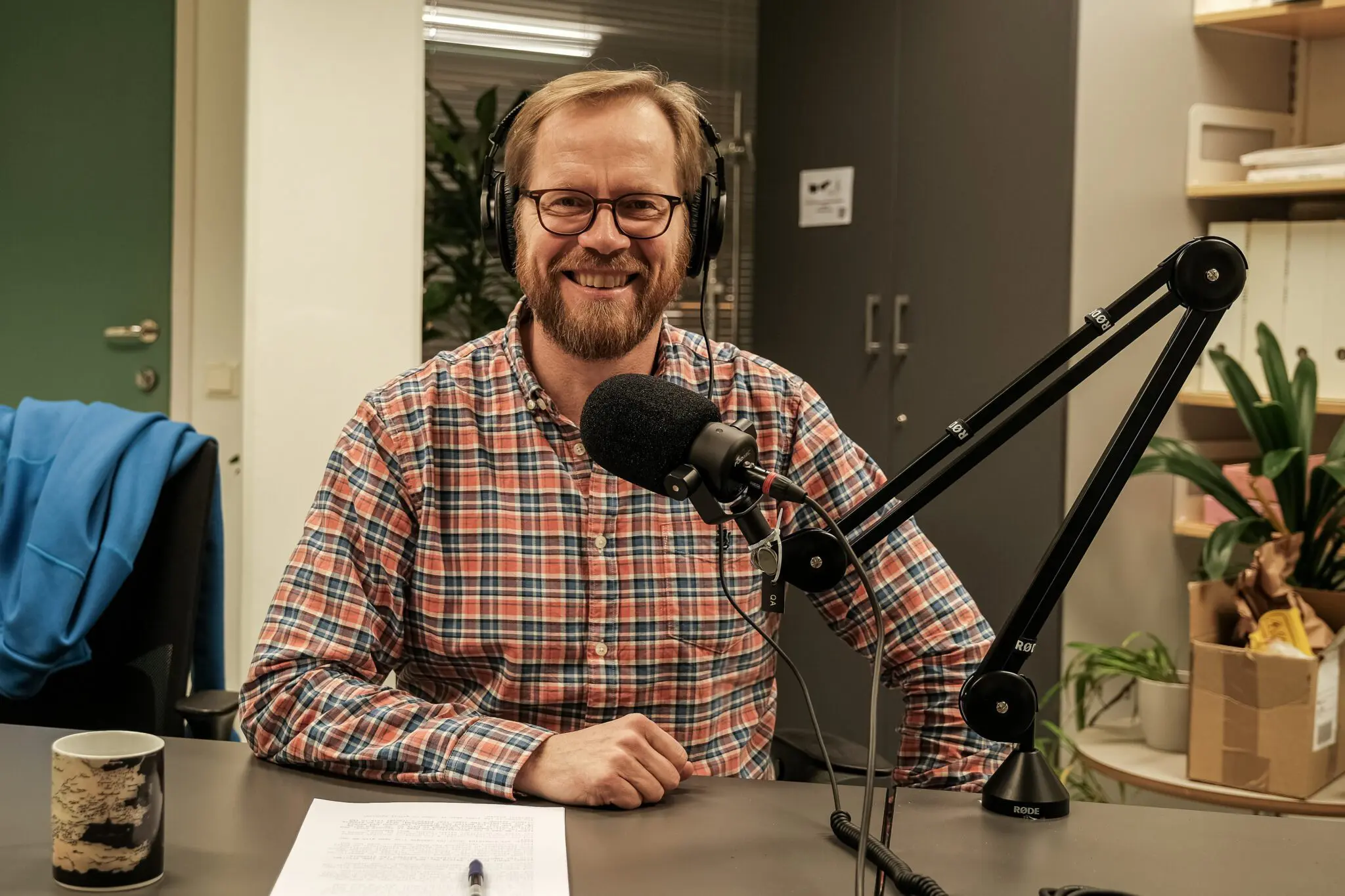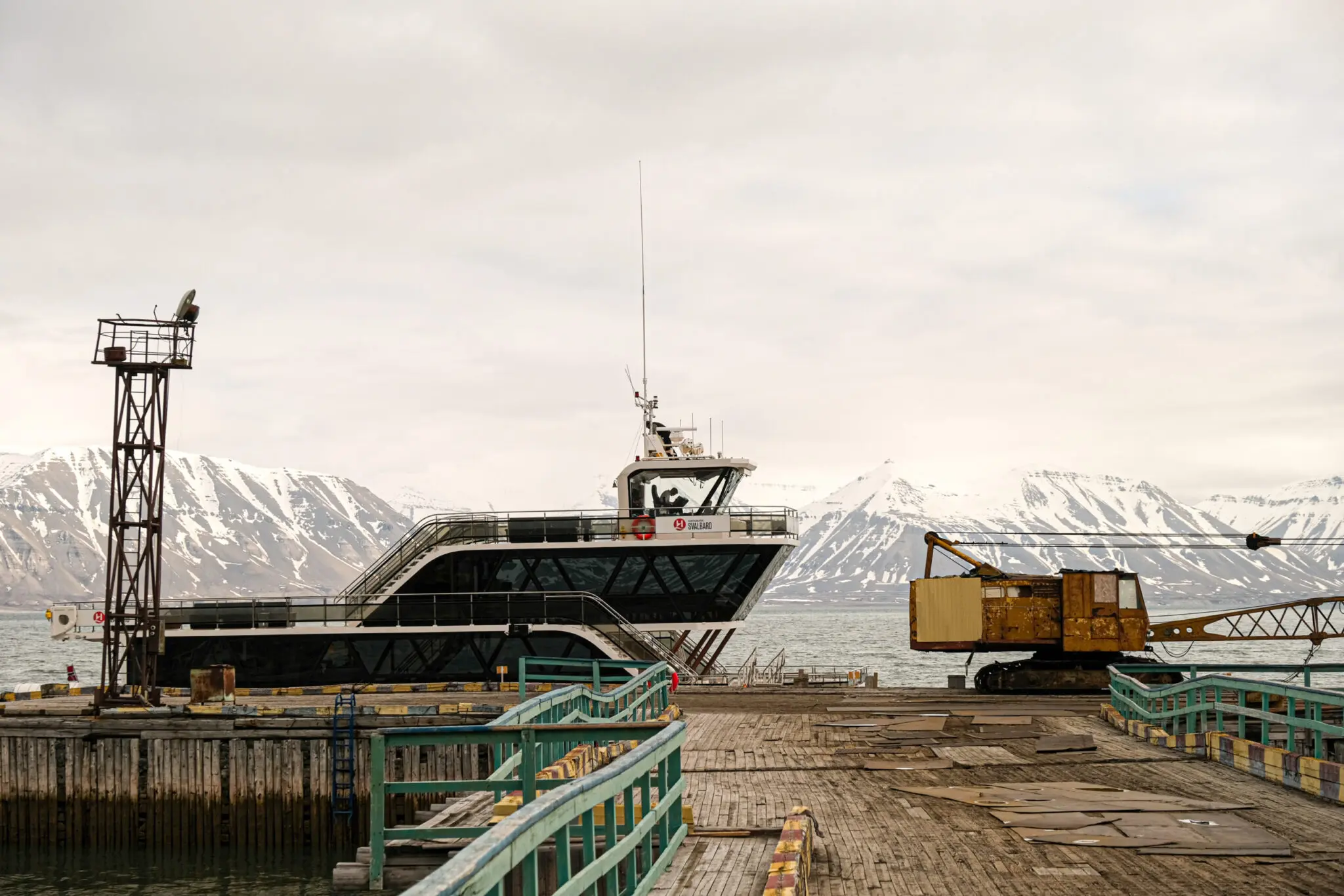It’s a wrap – season 1 of The ColdCast
What does PFAS, Arctic safety, ocean currents, science communication and FieldPass have in common? You can learn more about it in The ColdCast. As season 1 comes to an end, we have had a chat with host Maria Philippa Rossi.

We've had a chat with podcast host Maria Philippa Rossi.
What was the idea behind a science podcast?
There’s nothing new about a science podcast, but the aim was to reach out to a wider audience with glimpses from the research that goes on in Svalbard. By having UNIS as a base, we had a unique opportunity to deliver popular science research dissemination on a consistent basis.
How did you recruit guests?
That was hard! In that sense that we were only going to make eight episodes, and there are so many more people we would have wanted to talk to. But the guests are mainly researchers here at UNIS with a field of study that we wanted to know more about.
How does science communication through a podcast differ from other science communication?
The first episode lasted 29 minutes and 6 seconds. When we looked at the numbers a week after launch there was an incredibly high listen-through rate. I’ve worked a lot with social media, where you have people’s attention for a couple of seconds, so to suddenly have half an hour to play around with was fantastic. That doesn’t mean a podcast shouldn’t be concise and to the point, but the listener is in a different mode than someone scrolling on the couch.

What have you learnt?
What have I not learnt?! From the very first episode with oceanographer Frank Nilsen, I think the scientists have been incredible at explaining complicated matters in a not so complicated way. We’ve touched upon many topics that are relevant to life in Svalbard, and to get a better understanding of ocean currents’ impact on sea ice, the pollution in the ground, or why avalanches are rumbling down the mountains around us has been very rewarding. Not to mention the super inspirational chat with science communicator and glaciologist Heidi Sevestre – she is a rockstar, and so passionate about getting her research and knowledge out there. And maybe my favourite topic; weather forecasting. Why is weather forecasting in the Arctic so challenging? Lukas Frank explains this in a beautiful way.

What are the challenges of making a podcast?
It was the first time in front of a microphone for several of the interviewees, but I think everyone did very well. For instance, check out the episode about Centres for Excellence in Education. Department leader in biology Steve Coulson has such an excellent radio voice. BBC should call him next time they’re in town!
Overall, I’m happy to see that we were able to provide “media training” in a safe environment. Next time the scientists are interviewed on radio or in a podcast they will have this experience to look back on. Although a microphone all close up can be a bit intimidating, it’s actually good fun!
Technician Simen Salomonsen Hjelle has been the wizard behind the mixing board and done all of the editing. I think most of his work has consisted of editing out all my “eeehms….” and “aaahhs.” Some episodes have been super smooth and have basically just been a conversation from start to finish. Others have included more discussion during the recording, questions about whether we’ve covered enough, explained everything and so on. I think I have been the one who’ve been most happy about the podcast not being live!
Any plans for more episodes?
UNIS got funding for eight episodes through the Norwegian Research Council. We have produced those episodes, and an additional bonus episode when paleontologist Jørn Hurum visited Longyearbyen. It has been an incredibly fun medium to work with, and the feedback we’ve gotten from listeners has been good. So, I hope for a second season! There is definitively enough to talk about!
Season 1 of The ColdCast consists of the following episodes: